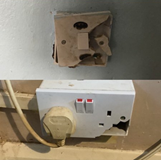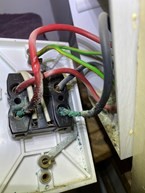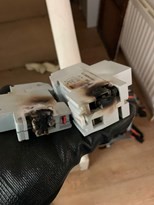What do people think of this:
https://www.bbc.co.uk/news/business-61881979
The charity Electrical Safety First (ESF) said the checks had found 7,000 faults including exposed live wiring.
Back in 2012, the ESF partnered with the Electrical Contractors’ Association (ECA) to create Certsure, which operates ECA Certification and NICEIC competent person scheme.
Do you think this figure is likely to be higher in reality given what we know about the price war and race to the bottom which affects how inspections are done? We have all heard stories of EICRs deemed satisfactory when they shouldn't have been, of qualified supervisors not properly checking the work carried out by their subcontractors.
Is it cynical of ESF to release these figures and lobby for more properties to be covered when it is the NICEIC competent person scheme that has been criticised for allowing for subpar checks to be carried out in the first place?
I'd be really interested to get your views....




